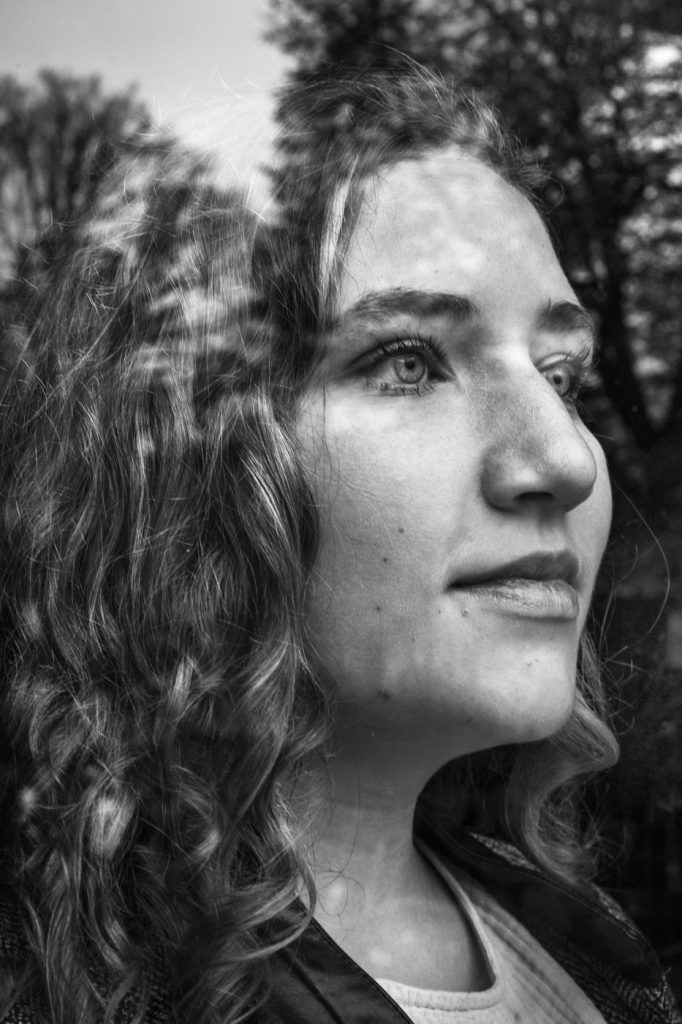For Kate Murdock, it’s entrepreneurship all the time. She is the Altschuler-Meyer CEO of IDEA, in which she leads Northeastern’s student-run venture accelerator and manages a team of 28 students. This week, as part of Global Entrepreneurship Week, IDEA is holding one of its signature events, NEXPO, which showcases a handful of IDEA ventures.
What’s more, Murdock is launching a new initiative this year focused on better preparing IDEA ventures to raise external funding. We caught up with her recently to discuss her journey through Northeastern’s entrepreneurial ecosystem, and all things IDEA.
She discovered her interest in entrepreneurship during her freshman year
In high school, Murdock envisioned a career in public policy. She interned for the American Civil Liberties Union and worked as a research assistant for an environmental law firm. But once she arrived at Northeastern, she reached out to numerous student organizations to explore all that student life on campus had to offer. After attending an Entrepreneurs Club speaker series event, she was hooked and soon enough was involved in the university’s expanding network of entrepreneurial programs and activities. She said Casey Hogan, then the E-Club’s president, “took me under her wing.”

CEO Kate Murdock, DMSB’18,
is develoing a new stage of IDEA: the Invest stage, which will help ventures bridge the gap to securing external funding. Photo by Adam Glanzman/Northeastern University
Prior to becoming CEO, Murdock served as an investment analyst for IDEA and as senior director for the Entrepreneurs Club’s Entrepreneurship Immersion Program., which is now called Connect. She was also selected to work for the investment team of Dorm Room Fund Boston, a student-run venture firm that invests in student-run startups.
After graduation, she hopes to work in corporate development, particularly on the operational and strategy side. “I have so much to learn, and I want to go to a place where I’ll have the opportunity to spend the next few years diving in and getting more experience and functional expertise,” she said.
She’s launching a new stage of IDEA
One of Murdock’s primary initiatives as CEO is to launch a new stage of IDEA: the Invest stage. Prior to this semester, ventures went through three stages—Ready, Set, and Go—where they would identify a problem and design a solution, then develop a business model and establish an initial product or service, and finally start executing on their business milestones to scale the company in preparation for raising external funding. That’s where Invest comes in as the fourth stage, to help entrepreneurs grow their networks and approach individuals as well as organizations and funds to raise capital.
The Invest stage is piloting this fall, with about 15 ventures involved. “It’s exciting because we’ve wanted to help bridge the gap between gap funding in the Go stage to actually raising a first round,” she said. “Until now, ventures have done this in an informal way with support from IDEA or our network. The purpose of this stage is to make this informal stage formal.”
Murdock said launching Invest is part of her larger focus on treating IDEA like one its startups—that is, continuing to innovate upon and improve its programs and resources to work the best it can for IDEA ventures. “We’re constantly evolving and iterating,” she said. “I have an incredible team here. What makes it work so well is motivation—everyone who is here wants to be here.”
She’s learned a lot about entrepreneurship
“If there’s one thing I’ve learned above all, it’s that entrepreneurship is not an easy road,” Murdock said. “Starting a company is a daunting task. Our some 360 ventures are really brave. The opportunity cost is high. Even before you take the leap of working full-time on it, it’s a big time commitment.”
Murdock said IDEA is not only helping entrepreneurs launch their businesses; it is educating people to become entrepreneurial thinkers and develop a mindset that will carry forth in their careers, regardless of the paths they pursue. “The mindset of an entrepreneur is one of strengthen, conviction, and passion and one that’s willing to take risks and be outspoken,” she said.
